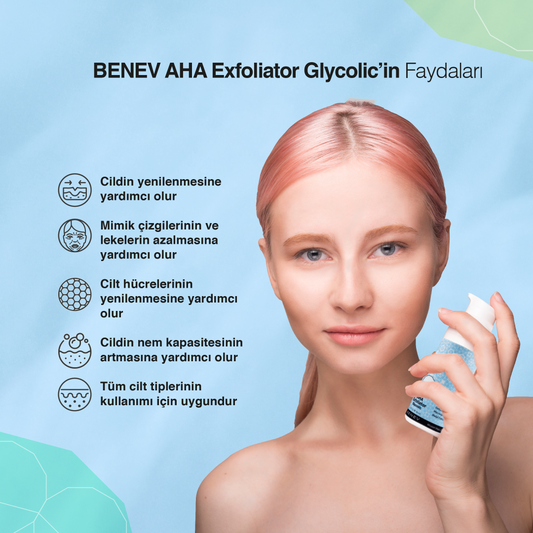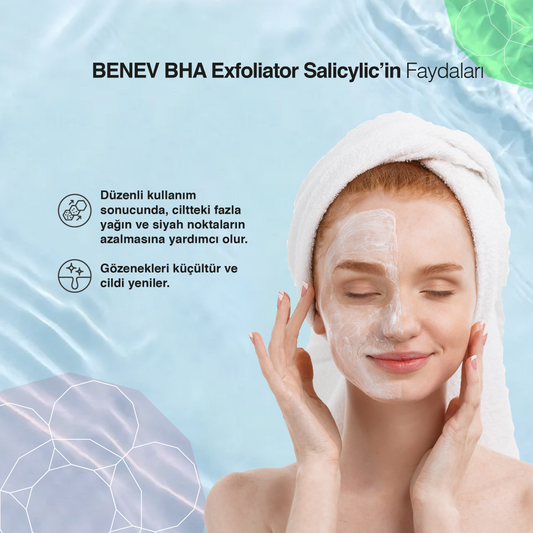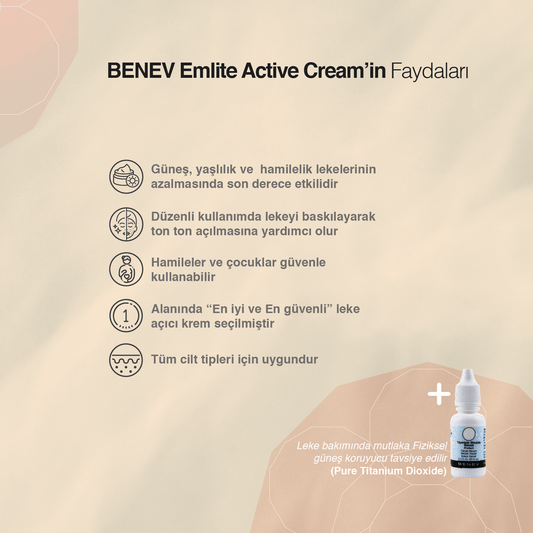What is Anti-Aging and What are its Benefits?
What are the Factors that Cause Aging?
Although aging is mainly caused by genetic factors, it is also associated with factors such as the decrease in the rate of renewal of tissues in the body, loss of flexibility, the effect of gravity, habits such as smoking and alcohol, sunlight and damage to the skin and body caused by certain chemical substances. The damaged and slow-to-renew skin surface loses its shine and becomes thinner. The main reason for sagging in the body is the sagging of the skin that has lost its elasticity due to gravity. While excessive exposure of your face to harmful sun rays also causes effects such as wrinkles and blemishes on your face, one of the biggest factors that causes the aging effect is smoking.
How is Anti-Aging Done?
Anti-Aging is a word that is frequently encountered in anti-aging products and is synonymous with the word ‘aging’. The earlier you start applying regular care routines to your skin, the later you will be likely to encounter the first fine lines and wrinkles. Keeping your skin clean and meeting the need for moisturizing without neglecting your daily care is an effective way to postpone the time you start using Anti-Aging care products. Sun protection is also an essential part of anti-aging care. Exposure to the harmful UV rays of the sun can accelerate skin aging. Using a broad-spectrum sunscreen daily can protect your skin from the harmful effects of the sun. Regular exercise is also a way to stay young. Exercise can increase blood circulation, increase energy levels and help cope with stress. It is also important to pay attention to your sleep pattern. Sufficient and quality sleep can help your body renew itself and slow down the aging process.
What are Anti-Aging Methods?
There are various methods and approaches to delay the effects of aging. You can choose the products or applications you prefer according to your own skin and needs. However, the most commonly used anti-aging methods are:
Factors That Cause Aging
Aging is a complex process influenced by various factors. Here’s a summary of the main contributors:
-
Genetic Factors: Your genetic makeup largely determines your skin’s aging process, influencing how quickly signs of aging like wrinkles and sagging appear.
-
Decreased Tissue Renewal: As you age, the rate at which your body renews tissues slows down. This means that skin repairs and regenerates less efficiently, leading to signs of aging.
-
Loss of Elasticity: The skin loses its natural elasticity over time. This loss, combined with the effects of gravity, causes the skin to sag and wrinkle.
-
Gravity: Over time, gravity pulls on the skin, which contributes to sagging, especially in areas like the cheeks, jawline, and neck.
-
Sun Exposure: Ultraviolet (UV) rays from the sun damage skin cells, leading to wrinkles, age spots, and other signs of premature aging.
-
Smoking: Smoking accelerates skin aging by breaking down collagen and elastin, leading to wrinkles and a dull complexion.
-
Alcohol Consumption: Excessive alcohol can dehydrate the skin and affect its appearance, contributing to aging.
-
Environmental Pollutants and Chemical Exposure: Exposure to pollutants and harsh chemicals can damage the skin, contributing to premature aging.
How Anti-Aging Is Done
Anti-aging involves a combination of strategies and products designed to minimize the visible effects of aging. Here’s how it’s typically approached:
-
Early and Regular Care: Starting a skincare routine early and maintaining it consistently helps delay the onset of fine lines and wrinkles.
-
Cleansing and Moisturizing: Keeping the skin clean and adequately moisturized helps maintain its health and appearance. Regularly using products suited to your skin type helps keep your skin hydrated and resilient.
-
Sun Protection: Daily use of broad-spectrum sunscreen protects the skin from harmful UV rays, which can accelerate aging. Sunscreen should be applied even on cloudy days and reapplied every two hours when exposed to the sun.
-
Exercise and Sleep: Regular physical activity boosts circulation and overall health, while adequate and quality sleep supports skin repair and regeneration.
Common Anti-Aging Methods
-
Anti-Aging Daily Life Methods:
- Healthy Diet: Consuming foods rich in antioxidants, vitamins, and minerals helps protect and rejuvenate the skin.
- Hydration: Drinking enough water keeps the skin hydrated and maintains its elasticity.
- Massage: Regular facial massage can improve circulation and help counteract the effects of gravity.
-
Anti-Aging Skin Care Methods:
- Cleansing: A gentle cleanser suited to your skin type removes dirt and oil, setting the stage for other treatments.
- Exfoliation: Regular exfoliation removes dead skin cells and promotes cell turnover.
- Moisturizing: Moisturizers with ingredients like hyaluronic acid and peptides help maintain hydration and improve skin texture.
- Sun Protection: High-factor sunscreens prevent sun damage, which is crucial for preventing premature aging.
-
Advanced Dermatological Treatments:
- Chemical Peels: These exfoliate the skin to reveal a smoother layer underneath and can help with fine lines and uneven pigmentation.
- Laser Treatments: Lasers target specific skin concerns like age spots and wrinkles, stimulating collagen production.
- Microneedling: Involves tiny needles creating micro-injuries in the skin, promoting collagen production and improving skin texture.
- Botox and Fillers: Botox relaxes muscles that cause wrinkles, while fillers restore lost volume and smooth deeper lines.
How Anti-Aging Affects Skin Care
Anti-aging skin care methods aim to:
- Reduce Signs of Aging: Products with antioxidants, hyaluronic acid, retinol, and vitamin C target wrinkles, dryness, and uneven skin tone.
- Prevent Skin Problems: By addressing issues such as moisture imbalance and sun damage, anti-aging products help maintain a youthful appearance.
- Improve Skin Health: These methods enhance overall skin texture, brightness, and elasticity.
Incorporating a combination of lifestyle changes, daily skincare routines, and advanced treatments can effectively combat the visible signs of aging and support overall skin health.







